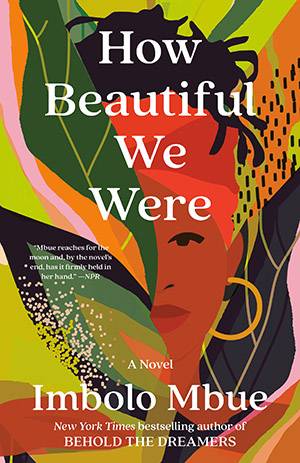First-Year Summer Reading Tells Powerful Story
The Community Reads Selection
Mbue’s novel, published in March 2021, portrays the modern-day battle between a large oil corporation corrupted by the haze of capitalism and the small African village of Kosawa, which is left to deal with the aftermath of environmental damages.
The New York Times bestselling author tells Kosawa’s story through voices of the past, present and future, showing how far a corporation will go in the name of wealth and, when pushed, how far a community will go in order to protect the land that they love and the place they call home.
To summarize: Pexton, an American oil company, began drilling for oil in the land near Kosawa. Unbeknownst to the village’s residents, Pexton’s close proximity will forever alter their lives for the worse. The effects of the corporation’s greed not only destroys the surrounding ecosystems, but also the moral compass of the residents. As Pexton continues to expand, the people of Kosawa are forced to take matters into their own hands before the damaging effects become irreversible. As time progresses, the children who grew up in the village evolve into the leaders of a decade-long revolution sparked by their desire to reclaim their land from Pexton’s grasp.
The novel is an emotional rollercoaster. From witnessing life’s delicate moments that come with growing up, to watching the children flourish into leaders, Mbue’s book exhibits all of life’s core memories. The author conveys a decades-long battle through the children of the future. Although they did not experience the founding of their village, many of the characters are present until the last moments of the war — fighting hard until their final breaths.
Mbue’s use of perspectives is admirable, and one of the most impressive features of the novel. She is able to tell the life of Kosawa through generations before Kosawa underwent a revolution, the children who led the revolution and those who fell victim to catastrophe. Through a non-traditional approach, the story flows seamlessly and will have readers on the edge of their seats the entire time.
Another impressive and entertaining feature of the novel is the story’s arc, which captured the character development of “The Five,” the original children of Kosawa. The pure innocence that comes with childhood transforms into a fiery rage as their home deteriorates before their eyes, adding a new dimension to the plot. The progression of the characters comes as a shock which leaves readers with mixed emotions. Nonetheless, Mbue makes readers fall in love with every character, each for different reasons.
For more information about the author, or if you want a chance to ask her questions directly, the University’s own Living Writers will be hosting a book discussion with Mbue on September 22 at 4:30 p.m. in the Colgate Memorial Chapel and online. All students and members of the Colgate community are welcome to attend, and the session is free of charge.









